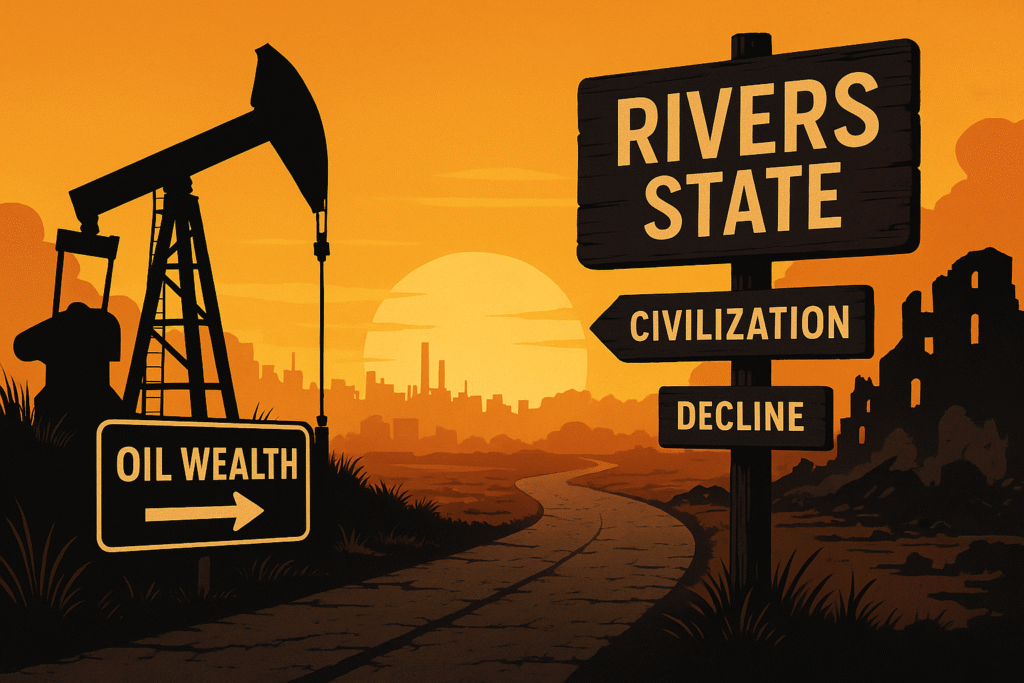The collapse of the Roman Empire in the 5th century plunged Europe into what historians once called the “Dark Ages.” Roads crumbled, literacy declined, and political order collapsed into feudal squabbles. Though modern historians debate the fairness of the term, the lesson remains: civilizations can regress if they fail to renew themselves.
Today, Rivers State of Nigeria risks a similar fate. Endowed with oil wealth and rich culture, it should be a model of prosperity. Instead, it is drifting into its own “modern dark ages” — marked by corruption, insecurity, and stagnation.
Rivers was once the jewel of Nigeria’s oil economy. Port Harcourt, “The Garden City,” bustled with industry and cosmopolitan life. But like Rome before its fall, promise has turned to disappointment. Infrastructure is in decay, universities are weakened by strikes and underfunding, and hospitals limp along. Politics has become gladiatorial, dominated by patronage and survival, not vision.
Just as medieval Europe was defined by insecurity and poverty, Rivers struggles with its own crises. Oil revenues enrich a narrow elite while most citizens endure unemployment and hardship. Violence, militancy, and cultism plague communities much as invasions once plagued Europe. And civic culture has collapsed into power struggles, leaving the ordinary citizen voiceless.
Yet history also offers hope. Europe did not remain in darkness forever; the Renaissance brought renewal through knowledge, trade, and cultural rebirth. Rivers too can experience such a renaissance, but only if it makes bold choices.
First, it must reclaim knowledge. Education and research cannot remain afterthoughts. Without skilled, empowered people, no economy can thrive.
Second, Rivers must govern inclusively. Patronage and factionalism must give way to merit, accountability, and service. Leaders should be judged not by loyalty but by results.
Third, the state must diversify beyond oil. Agriculture, technology, and cultural industries can provide jobs and stability where oil dependency has only produced fragility.
Finally, Rivers must celebrate its cultural identity. Just as Renaissance Europe drew inspiration from its classical past, Rivers must draw strength from its heritage — as a unifying force for renewal.
The choice before Rivers is stark. It can remain stuck in decline, trapped in cycles of corruption and violence. Or it can embrace a renaissance, turning its resources into genuine human progress.
Parents must demand better education and healthcare. Business leaders must invest not just in profits but in community renewal. Government must summon courage to serve the people, not factions. And young people must refuse despair, channeling their energy into innovation and civic action.
The “dark ages” of Rivers State are not inevitable. Rome’s fall gave way to Europe’s rebirth. Rivers, too, can rise if its leaders and citizens embrace courage and vision.
History has already issued its warning. Now it offers its lesson: darkness need not be destiny. Rivers can either languish in its modern dark ages — or lead a renaissance that lights the path for Nigeria and Africa.


